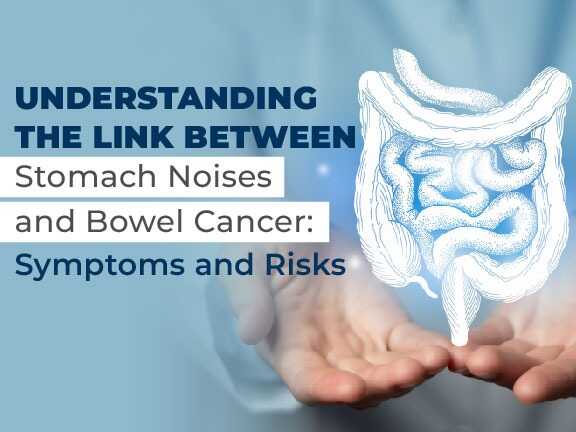Bowel Cancer and Stomach Noises: Should You Be Worried?
Stomach making noises is a common occurrence, but for patients with bowel cancer, these sounds can sometimes signal an underlying issue. One of the main concerns is borborygmi, the medical term for rumbling or gurgling noises caused by gas moving through the intestines. When these noises become more intense or persistent, especially in combination with symptoms like abdominal pain or blood in the stool, they may indicate partial blockages or other complications.
Many people wonder, is stomach noises a sign of colon cancer? While not always, in certain cases—especially when associated with unexplained changes in bowel habits—they can be. Keeping track of such changes and consulting a healthcare provider is crucial. Left untreated, issues like colon cancer stomach noises may escalate, particularly if the tumor interferes with normal digestion and motility.
Can Bowel Cancer Cause Stomach Noises?
Yes, bowel cancer can cause noticeable changes in how the stomach and intestines sound. In some patients, this results in loud stomach noises, particularly when tumors disrupt normal digestion. The link between colon cancer loud stomach noises and gastrointestinal distress is well-documented. Tumors can alter peristalsis (muscle contractions in the gut), leading to exaggerated borborygmi cancer symptoms.
Moreover, inflammation, fluid buildup, and partial blockages may all increase the intensity of gurgling sounds. Stomach gurgling colon cancer patients often describe these noises as “non-stop” or “especially noticeable in quiet settings.” While other conditions can produce similar symptoms, the persistence and progression of these sounds in cancer patients are warning signs that must not be ignored.
Stomach Noises After Eating: When to Be Concerned
Stomach noises after eating are usually harmless and relate to digestion. However, when these sounds become unusually loud or painful, they could be associated with gastrointestinal diseases, including bowel cancer. Bowel cancer stomach noises after eating may result from tumors interfering with the passage of food or causing abnormal contractions.
This is particularly concerning if the gurgling persists beyond meals or is localized—like left side of stomach gurgling, which may suggest obstruction in the descending colon. If the sound is accompanied by bloating, pain, or changes in stool, it’s time to see a doctor. While stomach making noises is normal, unusual patterns can indicate something more serious, such as stomach growling cancer.
Does colon cancer make your stomach gurgle a lot?
Yes, colon cancer can increase the frequency and intensity of gurgling, especially when the tumor affects bowel motility or causes partial blockages.
Is a rumbling stomach a sign of colon cancer?
A rumbling stomach alone isn’t enough for diagnosis, but when it’s persistent and paired with other symptoms, it could indicate colon cancer.
What cancer makes your stomach gurgle?
Colon cancer is most commonly associated with stomach gurgling, but pancreatic and other gastrointestinal cancers may also cause this symptom.
When should I worry about stomach noises?
If stomach noises are persistent, unusually loud, and accompanied by pain, blood in stool, or weight loss, you should consult a doctor promptly.
